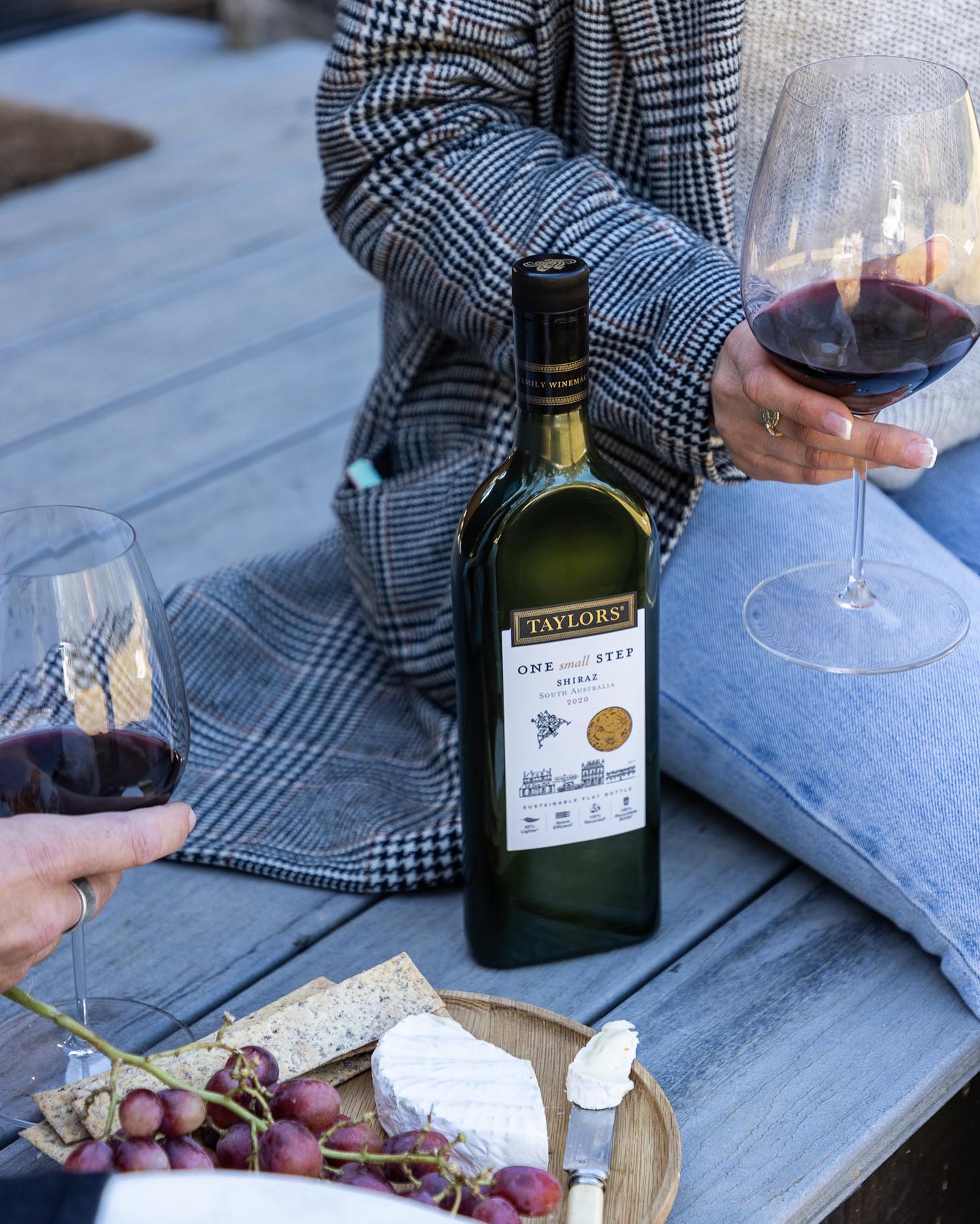Taylors “One Small Step Eco-bottle”

The launch of Taylors so called “eco-bottle” seems certain to ignite the glass v plastic debate. It’s an argument that consumer health advocates, scientists and environmentalists have been having for years, but the launch of a range of consumer focussed wines in a “freight-friendly” plastic bottle might just be the spark needed to light the proverbial bonfire.
According to a press release issued by Taylors, “a collaboration between sustainable packaging company, Packamama and winemakers, Accolade Wines and Taylors Wines, eco-bottles of Banrock Station wines and Taylors’ One Small Step range are for sale exclusively through select Liquorland and First Choice Liquor Market stores nationally” from June this year. The company contends that the “eco-bottle” shares the classic high-shouldered silhouette of a traditional “Bordeaux” wine bottle. But when turned to the side, it reveals a slimmer, flatter profile that allows twice as many bottles to fit in a standard wine case – which means it’s much more efficient to transport. Using recycled PET also saves weight and with the bottles being 83 per cent lighter, transport costs are reduced as well as the energy in production and recycling to further tackle greenhouse gas emissions.”
There’s no argument that a lighter, slimmer bottle will be much easier, cheaper and energy efficient when it comes to transport, but I can hear the cries of outrage from the consumer health advocates who believe that plastic bottles can be toxic. I’m no scientist, but I’ve read many of the consumer health proponents’ arguments that plastic bottles contain a cocktail of chemicals like pesticides, polycyclic aromatic hydrocarbons (PAHs), polychlorinated biphenyls (PCBs), heavy metals, and the much-maligned bisphenol A (BPA), to name just a few. It’s said that when heated, and over time, these chemicals can leach into food.
Given that so many sports drinks, bottled waters and even dairy products are successfully sold in plastic bottles, will the plastic bottle image really be a barrier to commercial success? Or will concerns about microplastics and leaching overwhelm the shiny new plastic winemaker toy?
When it comes to recycling, there’s no clear winner between glass and plastic. While less than 10% of plastic is actually recycled, glass boasts a recycling rate above 30%. Glass can be recycled over and over again while normally, plastic has only two or three lives. To recycle glass requires consumption of enormous amounts of energy in heating it to over 1,500 degrees Celsius, but then plastic requires copious quantities of fossil fuels to make it – accounting for about 8% of global oil production. Given plastic’s low recycling rate, one could argue that energy savings is not a compelling reason to switch from glass to plastic. But in reality, what probably matters most is what the consumer thinks. Would you reach for the plastic bottle if you believe that it’s more environmentally friendly than glass?
Purist wine aficionados will be quick to point out that plastic allows oxidisation over time whereas glass is impervious, but given that the vast majority of wine in consumed within days of being purchased, will it really matter?
Leaving aside the glass v plastic debate, the Taylors “One Small Step Eco-bottle” Chardonnay and Shiraz are unarguably palate-pleasing and affordable. Both are available in the Coles retail outlets and sell at only $16 a bottle. Taylors wines never fail to impress at their price point, and they were a successful pioneer of screwcaps in Australia; so, I’ll watch with interest their foray into plastic packaging.
As published in the Courier Mail